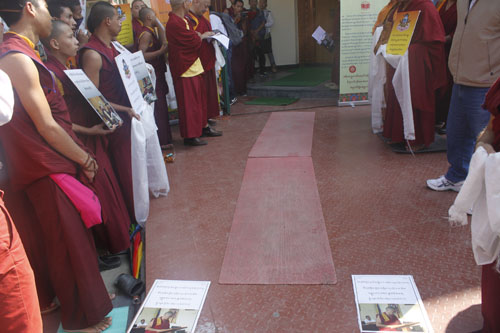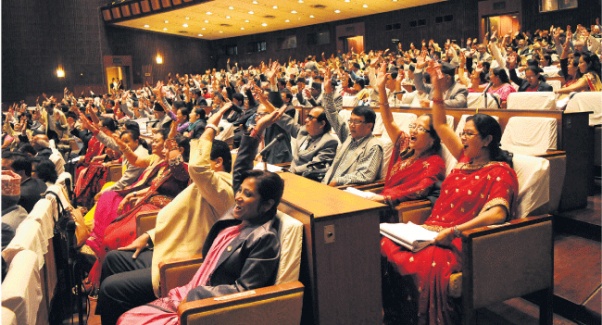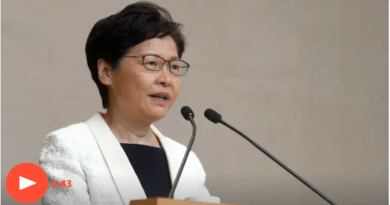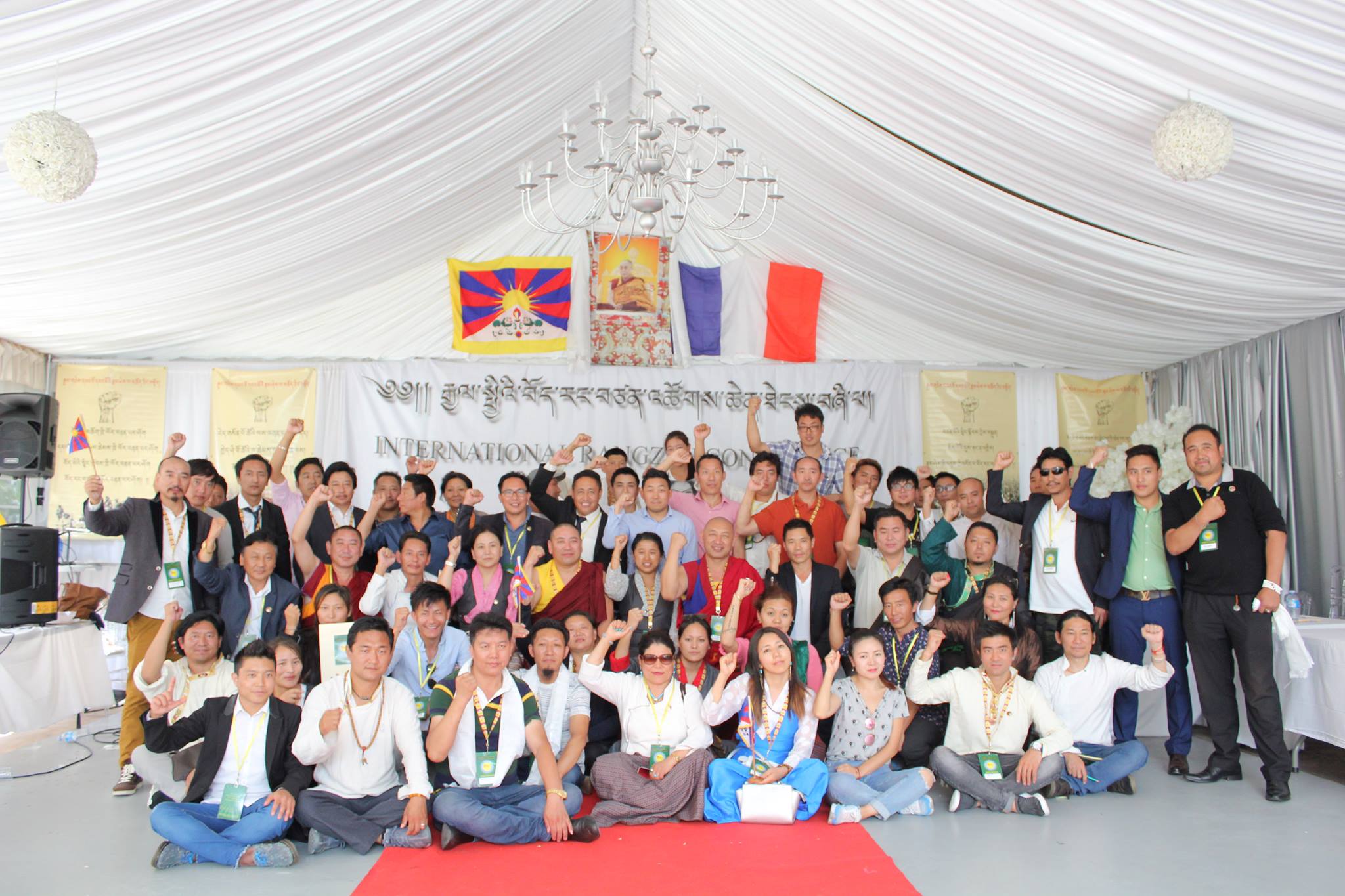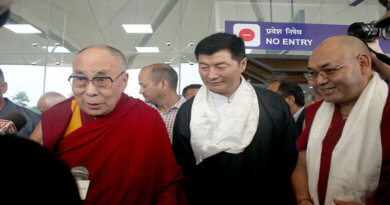Tibetan parliament opens to peaceful protest by Jhonang followers
DHARAMSALA, Sep 15: The 10th session of the 15th Tibetan Parliament- in-exile opened today to a peaceful protest by a group of Tibetans demanding recognition from the Parliament for their unique tradition of Tibetan Buddhism.
Holding khatas (Tibetan ceremonial scarves) and pamphlets in their hand, the protesters lined up on both sides of the path leading to the Parliament.
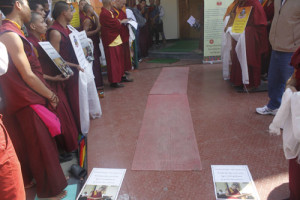 The group comprising of about 150 people belonged to Jonang Tibetan Buddhist tradition which is currently not recognized as a major school of Tibetan Buddhism despite gaining both verbal and written support from various individuals and institutions within the Tibetan society for it to be considered a unique tradition. His Holiness the Dalai Lama and the 11th Buddhist Conference that was attended by heads and representatives of the four major schools of Tibetan Buddhism and the ancient Tibetan religion of Bon have both given verbal and written support for Jonang to be considered a separate tradition of Tibetan Buddhism.
The group comprising of about 150 people belonged to Jonang Tibetan Buddhist tradition which is currently not recognized as a major school of Tibetan Buddhism despite gaining both verbal and written support from various individuals and institutions within the Tibetan society for it to be considered a unique tradition. His Holiness the Dalai Lama and the 11th Buddhist Conference that was attended by heads and representatives of the four major schools of Tibetan Buddhism and the ancient Tibetan religion of Bon have both given verbal and written support for Jonang to be considered a separate tradition of Tibetan Buddhism.
Currently the Tibetan Parliament comprises of 10 representatives each from the three traditional provinces of Tibet, 2 each from the four major schools of Tibetan Buddhism and Bon religion, 2 each from North America and Europe. If amendments were made to the Tibetan Charter through majority vote in the parliament in favor of Jonang tradition, two additional seats will be made available in the Tibetan Parliament for the representatives of Jonang tradition.
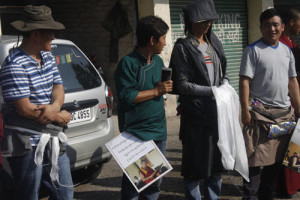 During the 9th session of the Parliament, creation of two seats for Jonang tradition was discussed but failed to get the requisite support of two-thirds of the total membership of the House. Only 17 members voted in Jonang’s favor.
During the 9th session of the Parliament, creation of two seats for Jonang tradition was discussed but failed to get the requisite support of two-thirds of the total membership of the House. Only 17 members voted in Jonang’s favor.
The group today vowed to sit outside the Parliament and protest until their four demands are fulfilled.
The four demands are:
- Explain why His Holiness the Dalai Lama’s advice, recommendation letters of the heads of various Tibetan Buddhist schools and the resolution passed by the 11th Buddhist Conference are not being recognized.
2) The Parliament should explain why the resolution passed by the 11th Buddhist Conference and the speech given in the Parliament by Gasi Geshe Tseringpo (first MP to oppose the creation of Jonang seats) are not contradictory in nature.
3) Why due consideration was not given to the hundreds of applications submitted the Central Tibetan Administration by hundreds of thousands of followers of Jonang tradition from both inside and outside Tibet.
4) The Tibetan Charter should be amended and Jonangpas should be given equal rights as other major schools of Tibetan Buddhism.
The 10th session of the 15th Tibetan Parliament in exile will primarily discuss the annual reports of the seven departments of the Central Tibetan Administration.
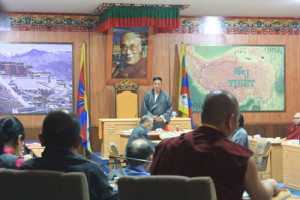 The parliamentarians today discussed on how to resolve the prevailing critical situation inside Tibet and unanimously passed five resolutions in favour of, expressing solidarity with the sufferings of the Tibetans inside Tibet, mourning and paying homage to the Tibetan self-immolators, paying tribute to late Kasur Richen Dhondup Sadhutsang, late Gadong Tenzin Wangdak, former civil servant and official medium and late Dr A.P.J Abdul Kalam, former president of India.
The parliamentarians today discussed on how to resolve the prevailing critical situation inside Tibet and unanimously passed five resolutions in favour of, expressing solidarity with the sufferings of the Tibetans inside Tibet, mourning and paying homage to the Tibetan self-immolators, paying tribute to late Kasur Richen Dhondup Sadhutsang, late Gadong Tenzin Wangdak, former civil servant and official medium and late Dr A.P.J Abdul Kalam, former president of India.

